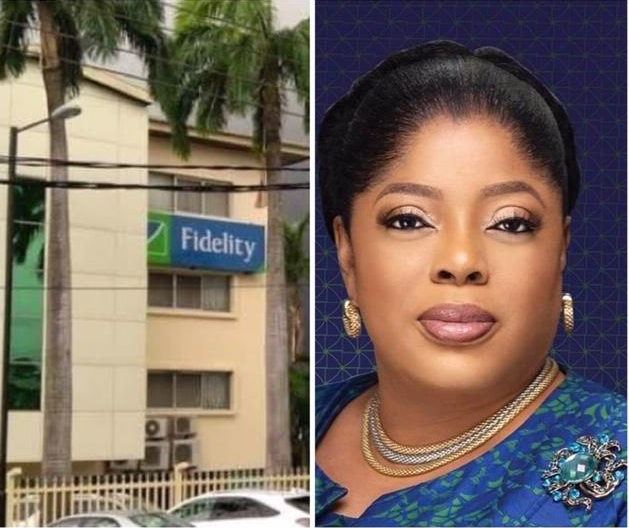Campus360 reports that Fidelity Bank Plc, once hailed for its growth and leadership under Managing Director Nneka Onyeali-Ikpe, is now embroiled in a widening financial scandal that has raised alarm across Nigeria’s banking industry.
Mounting allegations of fraud, regulatory breaches, and multi-billion-naira liabilities have sparked concern among investors and depositors, with increasing calls for urgent intervention from the Central Bank of Nigeria (CBN) and the Economic and Financial Crimes Commission (EFCC).
₦19 Billion Fraud Probe at the Centre of the Storm
The crisis stems from a ₦19 billion fraud investigation involving Woobs Resources Limited. In a leaked audio published by Sahara Reporters, a voice alleged to be that of Onyeali-Ikpe claimed she “had to bail myself out” with ₦5 billion to avoid arrest.
Although police later described the payment as a “recognizance bond,” the revelation has rattled analysts and depositors, fuelling questions over governance and transparency within the bank.
The Federal Government has since charged Fidelity Bank and several associates with conspiracy and money laundering. While the Attorney General of the Federation (AGF) later amended the suit to exclude Onyeali-Ikpe’s name, the bank remains a defendant in the ongoing case.
Police investigations also revealed that ₦692 million belonging to Woobs was allegedly moved into a suspense account, and the company’s contact details deactivated—actions reportedly carried out without a court order.
More Legal Battles Mounting
Beyond the Woobs case, Fidelity Bank faces multiple high-value disputes and penalties, including:
A ₦225 billion Supreme Court judgment awarded to Sagecom Concepts Ltd.
A ₦10 billion lawsuit from Shago Payments (Alerzo Group) over alleged unauthorised deductions.
A ₦555.8 million fine from the Nigeria Data Protection Commission (NDPC) for data privacy violations.
Over 65 active lawsuits valued at an estimated ₦11.7 billion, according to the bank’s 2023 financial statements.
Experts warn that despite Fidelity Bank’s ₦385 billion pre-tax profit in 2024, these mounting liabilities could put significant pressure on the bank’s capital adequacy and liquidity ratios. Some analysts fear that if settlements are funded from internal resources, depositors’ funds could be indirectly exposed.
Regulatory Silence and Rising Concern
The CBN has yet to issue a statement on the situation, a silence observers say could heighten public anxiety. Meanwhile, the Securities and Exchange Commission (SEC) and the Nigerian Exchange Group (NGX)—where Fidelity’s shares are listed—are under pressure to enforce full disclosure regarding the bank’s ongoing investigations.
Civil society groups and financial experts are also urging the EFCC and ICPC to determine whether any illegal settlements were made to obstruct investigations, drawing comparisons to past banking scandals such as Oceanic Bank’s collapse under Cecilia Ibru.
A Test for Nigeria’s Financial Regulators
As the controversy deepens, analysts insist that transparency and accountability are now essential to restore confidence. They urge the CBN to confirm the bank’s true financial position, the EFCC to clarify the ₦5 billion “bail” claim, and the NDPC to enforce compliance with data protection sanctions.
For Nigeria’s regulators, Fidelity Bank’s crisis is more than a corporate scandal—it is a critical test of confidence in the nation’s financial system and its capacity to safeguard the interests of depositors and investors.
Efforts by NewsOnline Nigeria to obtain a response from Fidelity Bank’s Corporate Communications Department were unsuccessful as of press time.
Source: NewsOnlineng
Don't Miss Scholarships, Post UTME, JAMB and Admissions Updates. Receive news as they break.







